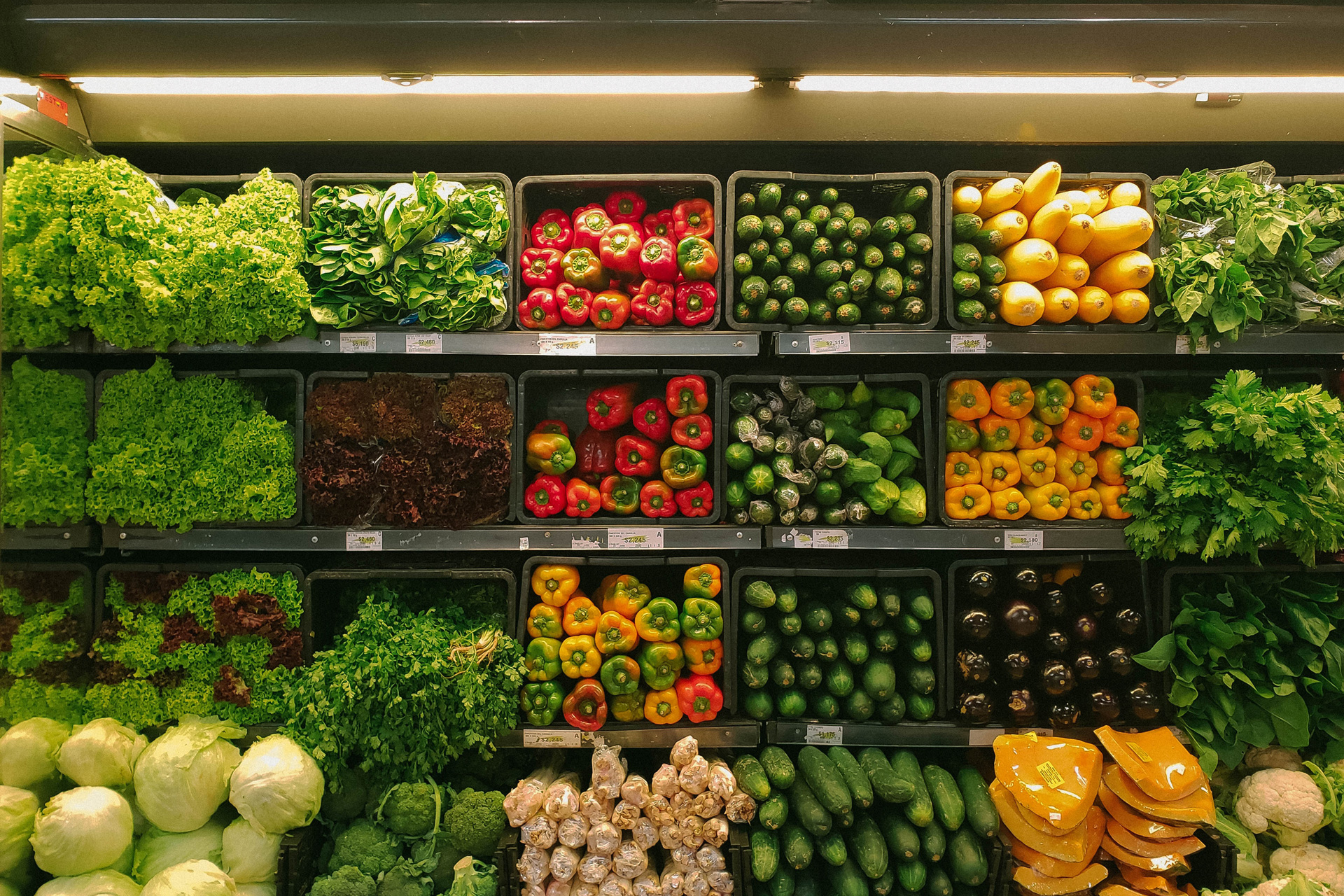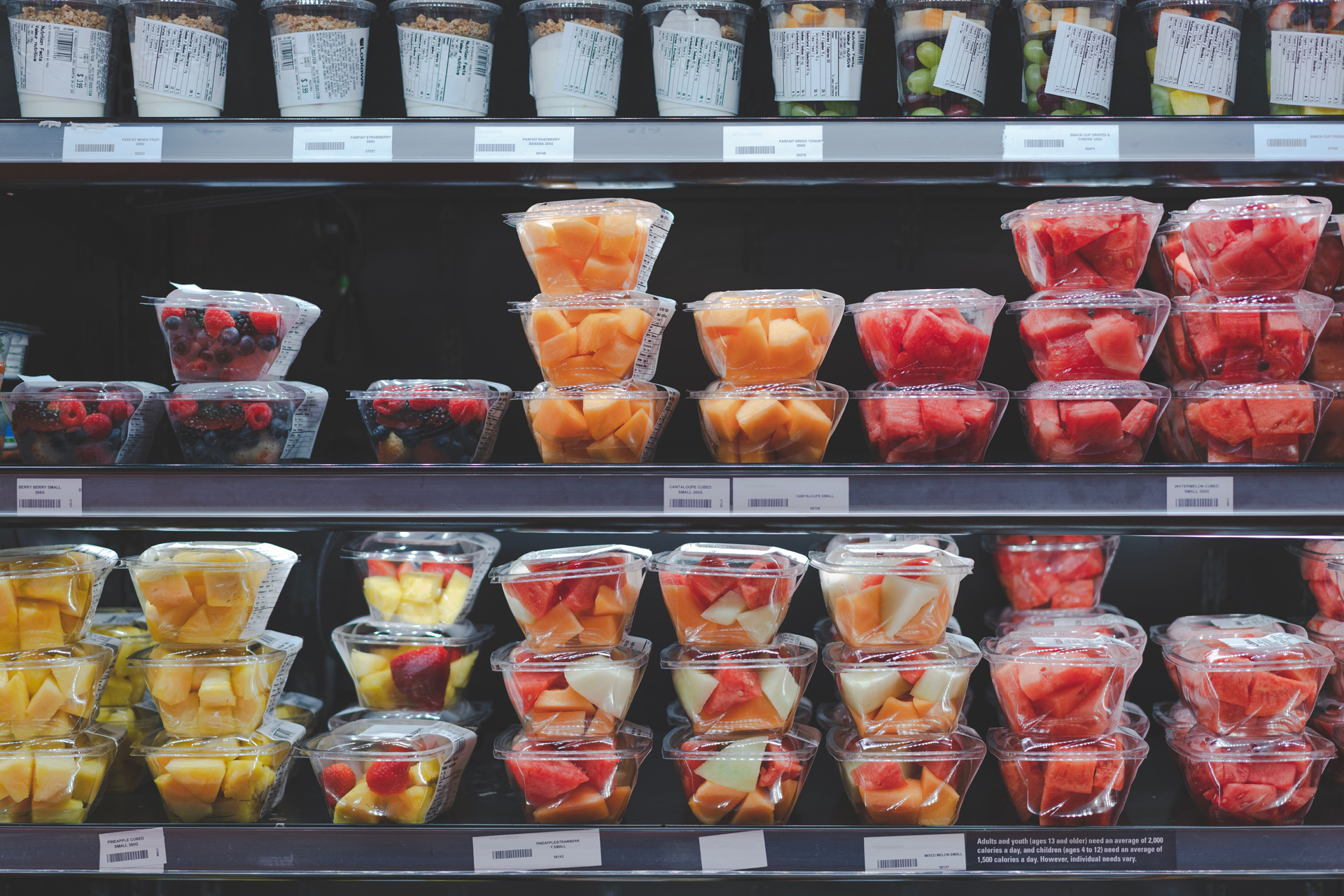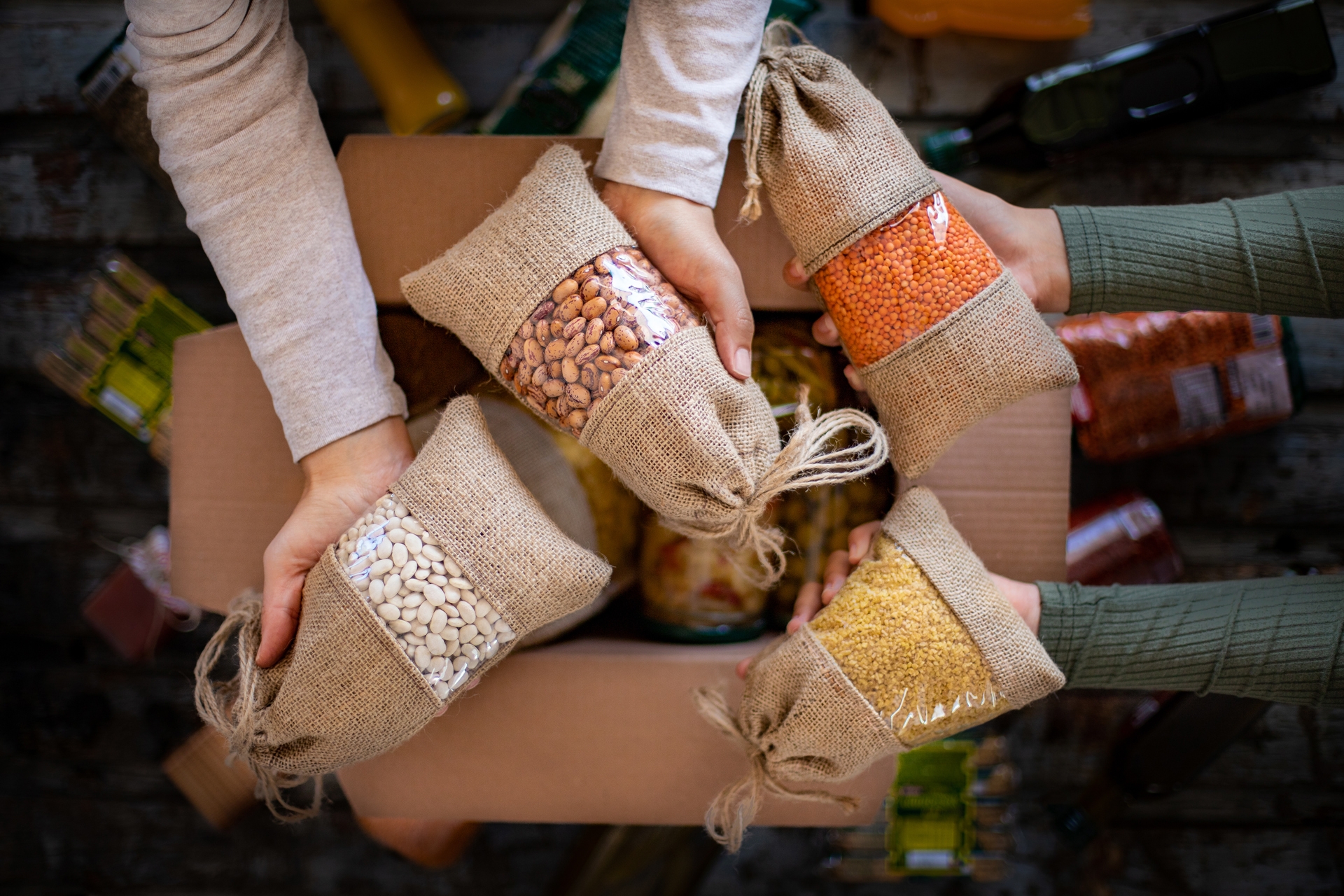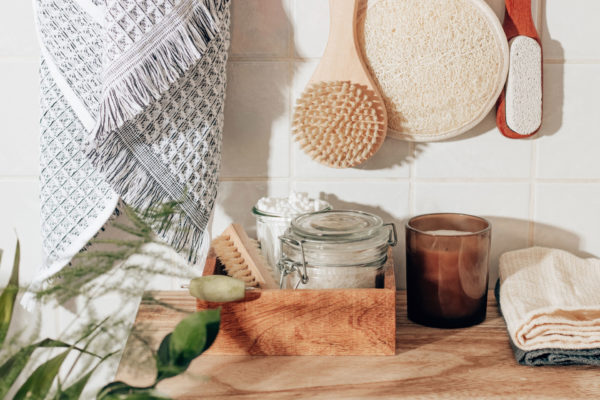Which Supermarkets Are the Most Eco-Friendly?
By
1 year ago
How the big chains are cutting their impact

While we’d all love to do our daily shopping at a local farm shop, the reality is most of us buy a significant proportion of our food from supermarkets. And, unfortunately, they aren’t the most eco-friendly option. Their sheer size means they have high greenhouse gas emissions, and the majority of products are packaged in single-use plastic. But, like all companies, supermarkets are taking steps to reduce their impact. So who is leading the charge when it comes to supermarkets and sustainability – and what should we be looking out for when choosing where to shop?
Supermarkets and Sustainability: What Are Supermarkets Doing To Reduce Their Impact?
Reducing Greenhouse Gas Emissions
The food and drink industry is responsible for around 35 percent of the UK’s total greenhouse gas emissions, and supermarkets are a significant part of that. Yet many of the big hitters are taking steps to improve things: at COP26, five of the country’s biggest supermarkets promised to halve their environmental impact by the end of the decade. The Waste and Resources Action Programme (WRAP) and World Wildlife Fund have also joined forces with eight UK supermarkets to enforce regular measuring and reporting of emissions. Aldi, Lidl, Co-op, Marks & Spencer, Waitrose, Morrisons, Sainsbury’s and Tesco have committed so far.
In 2022, Which analysed the annual reports of various supermarkets to see which supermarkets are doing the best when it comes to green initiatives. This included measuring greenhouse gas emissions, with Lidl being highlighted as doing the most to keep them low.
Becoming Electrified
Another way supermarkets are reducing their environmental impact is by switching to electric vehicles. Tesco recently became the first UK supermarket to use electric delivery lorries, with two battery-powered DAF lorries transporting goods from the outskirts of Cardiff to near Newport. The store has pledged to make its delivery service ‘fully electrified by 2028’. Alongside this, Tesco is aiming to make it easier for EV drivers by ensuring there’s at least one EV charger at all of its stores.
Morrisons, meanwhile, has 50kW chargers available at more than 200 of its stores, and Waitrose is on a mission to install 800 charging stations at up to 100 of its stores by 2025.

Tackling Plastics
Plastic packaging accounts for 70 percent of plastic waste in the UK, and supermarkets are a big part of this. You only have to take one stroll along a supermarket aisle to see how much plastic there is around – from bags to fruit punnets and water bottles. And the statistics are there to prove it: according to Greenpeace UK and the Environmental Investigation Agency (EIA), UK supermarkets produced 896,853 tonnes of plastic packaging in 2019 – roughly the equivalent of the weight of 90 Eiffel Towers.
Some are doing better than others when it comes to tackling the plastic problem. In Which’s survey, the Co-op has come out tops: ‘By weight, 94 percent of Co-op own-brand plastic is already recyclable at home, with the remainder recyclable in-store.’ Waitrose, meanwhile, also scored highly on plastic intensity, with Iceland getting the lowest – it turns out that buying 20 typical items at Iceland can result in 73 per cent more plastic packaging than doing so at Waitrose.
Stores including Waitrose, Ocado, Morrisons and Marks & Spencer are also introducing refill stations for dry goods like pasta, rice and cereals alongside household products. Lidl also recently announced it will be incorporating Prevented Ocean Plastic – plastic which would have otherwise ended up in the ocean – into its water bottles. And by 2025, all supermarkets have pledged to make their packaging 100 percent reusable, recyclable or compostable.
Morrisons is also introducing a new initiative for tackling plastic pollution. Running in collaboration with Podback, the scheme will encourage customers to recycle coffee pods. Colour-coded bags will separate aluminum and plastic pods before sending them to recycling processing plants within the UK. The trial will be rolled out in 29 stores including Milton Keynes, Reading and Watford.
M&S, meanwhile, has just launched a plastic-free fibre coffee cup and lid across 20 of its cafes and food halls. Coffee cups are notoriously hard to recycle due to the thin layer of plastic coating on the inside, which works to stop the liquid from seeping into the paper. In what’s being billed as a first for the high street, though, this cup from M&S is made from f100 per cent paper and is certified plastic-free. According to the supermarket, this change will remove over 20 million units of plastic packaging from the business.
Initiatives are going on beyond the food sphere, too. Tu Clothing by Sainsbury’s recently swapped its plastic babywear hangers to cardboard – a switch that will reportedly save 103 tonnes of plastic. This applies to Tu Clothing Babywear items that were previously on a plastic hanger, and it means people will be able to recycle cardboard hangers at home too. The scheme will be available in over 400 stores.

Getty Images
Cutting Food Waste
Naturally supermarkets have an abundance of leftover food – but, thankfully, Which’s report states none are sending this to landfill. The majority are redistributing their food waste for anaerobic digestion (AD), a process which turns it into biogas and compost. Ocado was rated as having the best food waste intensity score, as for every kilo of food bought, just 0.4g goes to AD. At Aldi, Co-op, and Lidl, around 10g of food is wasted for every kilo of food bought.
A more sustainable way of using surplus produce is by donating it to those in need. Tesco and Ocado are giving the majority of their surplus produce to food banks, while M&S has donated 34 million meals to charity since 2015. Others, including Aldi and Morrisons, are partnering with apps like Too Good To Go, which allows people to buy leftover food at a lower price.
Another way shops are trying to cut food waste is by removing ‘best before’ labels from packaging. Morrisons kicked off the trend back in 2022, removing best before dates on its fresh milk, and Asda, Sainsburys, Waitrose and Tesco have all made similar changes since.






